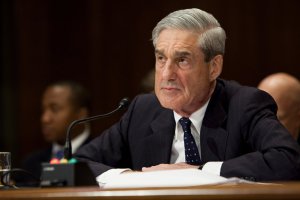 > Steve Vladeck, professor of law at the University of Texas School of Law, co-editor-in-chief of Just Security and co-host of the National Security Law Podcast: “A few hours after former FBI director James B. Comey finished testifying before the Senate Intelligence Committee on Thursday, President Trump’s personal lawyer, Marc Kasowitz, suggested that Comey had violated the law. By causing memos about conversations between Trump and Comey to become public, Comey had committed an “unauthorized disclosure of privileged information,” Kasowitz claimed.” Trump’s lawyer says Comey violated executive privilege. He’s wrong. “On a day characterized by hubris remarkable even for Washington, the blatant wrongheadedness of this “privilege” claim still stands out. In fact, executive privilege almost certainly does not cover the Comey memo. And even if it did, disclosing it without authorization isn’t illegal.”
> Steve Vladeck, professor of law at the University of Texas School of Law, co-editor-in-chief of Just Security and co-host of the National Security Law Podcast: “A few hours after former FBI director James B. Comey finished testifying before the Senate Intelligence Committee on Thursday, President Trump’s personal lawyer, Marc Kasowitz, suggested that Comey had violated the law. By causing memos about conversations between Trump and Comey to become public, Comey had committed an “unauthorized disclosure of privileged information,” Kasowitz claimed.” Trump’s lawyer says Comey violated executive privilege. He’s wrong. “On a day characterized by hubris remarkable even for Washington, the blatant wrongheadedness of this “privilege” claim still stands out. In fact, executive privilege almost certainly does not cover the Comey memo. And even if it did, disclosing it without authorization isn’t illegal.”
> Matt Zapotosky, Washington Post: Comey’s sharing of notes about Trump doesn’t make him a criminal, analysts say: Prosecutors who bring charges against people for sharing information with the public can do so only when classified or other national security material is at issue. Material cannot be classified to conceal legal violations or prevent embarrassment, according to an executive order from President Barack Obama. Telling a reporter nonclassified information of public interest is not only legal, but it’s often the right thing to do.
> Phillip Bump, Washington Post:There’s no indication Comey violated the law. Trump may be about to. By threatening James Comey, Trump’s lawyer may be violating whistleblower retaliation rules.
> Norman Eisen, chief White House ethics lawyer for President Barack Obama, and a co-founder and the chairman of CREW, Citizens for Responsibility and Ethics in Washington; and Noah Bookbinder, executive director of CREW and a former federal corruption prosecutor. Comey’s Case for Obstruction of Justice: “Mr. Comey’s sworn statement and answers before the Senate Select Intelligence Committee now provide strong evidence that President Trump committed obstruction of justice.” “But strong initial evidence is not the same as a slam-dunk case, and Mr. Comey’s testimony also made clear how far we have to go before the question is definitively resolved.”
> Phillip Allen Locavara, served as counsel to Watergate special prosecutors Archibald Cox and Leon Jaworski: I helped prosecute Watergate. Comey’s statement is sufficient evidence for an obstruction of justice case. “Comey’s statement lays out a case against the president that consists of a tidy pattern, beginning with the demand for loyalty, the threat to terminate Comey’s job, the repeated requests to turn off the investigation into Flynn and the final infliction of career punishment for failing to succumb to the president’s requests, all followed by the president’s own concession about his motive. Any experienced prosecutor would see these facts as establishing a prima facie case of obstruction of justice.”
Read more
 On ABC News’ “This Week,” attorney Jay Sekulow evaded a direct question about whether Trump would promise not to interfere with the probe run by Special Counsel Robert Mueller.
On ABC News’ “This Week,” attorney Jay Sekulow evaded a direct question about whether Trump would promise not to interfere with the probe run by Special Counsel Robert Mueller.



